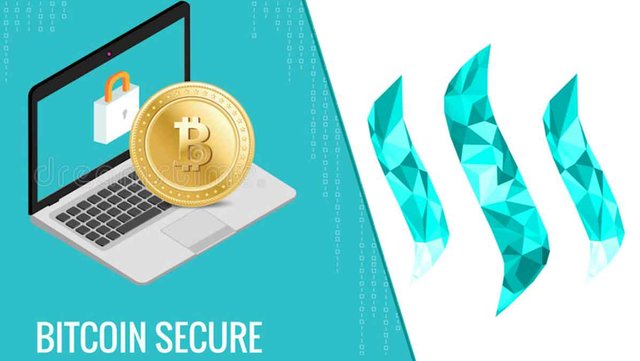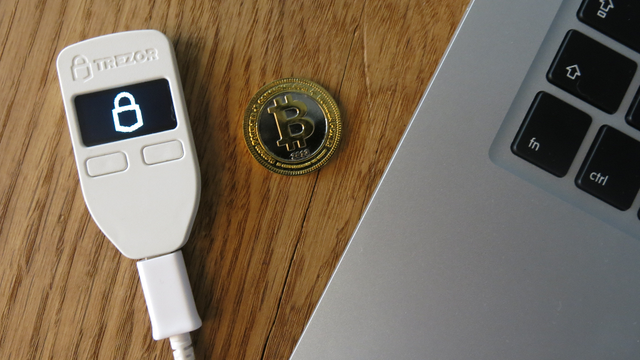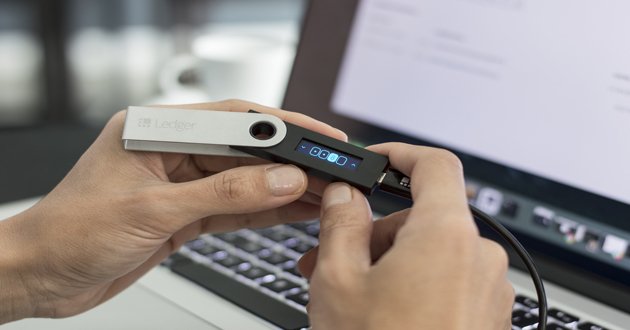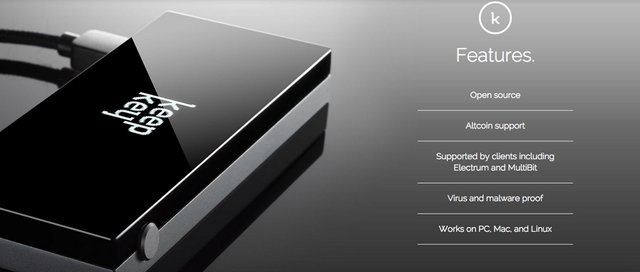How To Store Your Cryptocurrencies Safely: A Guide To Offline Hardware Wallets

Storing your cryptocurrency tokens safely is a very important topic that everyone dealing with digital coins should know about.
In times where wallets are being breached (Parity!), ICOs being hacked (Dashcoin!) and Exchanges are facing major struggles (Poloniex!), having a safe option to store your crypto investments should be a top priority.
Especially if you hold large amounts of cryptocurrency, leaving the coins in an exchange platform is NOT SAFE.
In 2014, one of the biggest exchange platforms of the time, Mt. Gox, collapsed - leading to a loss of 650.000 Bitcoins. Hundreds of thousands of users who were holding cryptocurrency on Mt. Gox lost all of their funds - just like that!
And sadly, there is no guarantee that something like this won't happen again.
Especially with the upcoming Bitcoin Hardfork, no one knows exactly what will happen to the network and to your Bitcoins - you should store them in a secure location, better safe than sorry!
So what are the alternatives for storing your cryptocurrency safely?
There is a number of different options, the cheapest one being paper wallets.
A paper wallet means that you print out the private and public keys to your bitcoin storage wallet. Those printed keys grant access to your funds, and losing your paper wallet also means losing access to your coins! So make sure to make several copies and store them in a safe or give one to someone you trust, for example your parents.
But of course a paper wallet can easily be lost, burnt or destroyed in any other way - which is why they are not the optimal storage solution.

The best solution for storing your coins are hardware / cold storage wallets.
Such wallets store your coins offline, and therefore protect them from being hacked.
It's basically a small hard drive (which would be indestructible, in the best case scenario) that securely contains your cryptocurrency wallet information.
There are a number of hardware wallets available, and many companies have come out with new products or added new features to their offline wallets as demand has increased a lot recently.
Below I'd like to share 3 of the most popular offline wallet solutions!
#1 - TREZOR: "The original & most secure hardware wallet."
Trezor is a very small device that securely stores Bitcoins or other cryptocurrencies.
It's very simple and quick to setup - you set a 9-digit pin code to secure your coins, as well as a 24-word long recovery seed with which you can restore your wallet in case you ever lose access.
The Trezor costs $89, is only 60 x 30 x 6 mm large and comes in black and white.
Just take these 3 simple steps to have everything solved: Get your own TREZOR. Set it up. Store your recovery seed in a safe place. It will help you regain access to all your coins and transaction history in case your device is destroyed or lost.

#2 Ledger Nano S: "Small & Secure Cryptocurrency Hardware Wallet"
The Ledger Nano S is a hardware wallet the size of a USB stick.
It supports Bitcoin and other major cryptocurrencies like Ethereum or Litecoin.
You secure your coins with an 8-digit key, and then connect the wallet to your laptop via USB.
The Ledger Nano S works with wallet providers like Mycelium or BitGo, is 98mm x 18mm x 9mm small and costs € 69.
When you own cryptocurrencies, you need to protect your confidential data and the access to your funds. With Ledger Nano S, secrets like private keys are never exposed: sensitive operations are isolated inside your hardware wallet within a state-of-the-art Secure Element, locked by a PIN code. Transactions can’t get tampered with, they are physically verified on the embedded screen with a simple press of a button.

#3 Keepkey: "The Simple Bitcoin Hardware Wallet"
The keepkey hardware wallet looks like a small hard drive and supports major cryptocurrencies like Bitcoin, Ethereum, Dash and more. What's unique about this wallet is that it has Shapeshift integrated - with this feature, you can exchange between assets directly on the device.
The keepkey wallet is 38 x 93 x 12mm small and costs $99 on Amazon.
KeepKey is a hardware wallet that secures bitcoin, ethereum, litecoin, dogecoin, dash, and namecoin. Your assets are protected from hackers and thieves. It works with the wallet software on your computer by taking over the management of private key generation, private key storage, and transaction signing.

How do you keep your cryptocurrency coins safe?

© Sirwinchester
Thank you SirWin. Bookmarked and kept as the go to guide for hardware wallets offline storage. I appreciate you for sharing this great content with us.
Thank you, that's great to hear and I'm glad I could share some useful information!
My way to create wallet :)

My CryptoStoge for storing crypto wallets, manual, guide, how to, in post ! Store your crypto in safe ! For STEEMIT only !
https://steemit.com/steemit/@niceviewsua/my-cryptostoge-for-storing-crypto-wallets-manual-guide-how-to-in-post-store-your-crypto-in-safe-for-steemit-only
I've been wondering about safety for a long time. I haven't yet acquired enough crypto where I am to worried about losing it. Its all generally on software but in the future I think I will by some of the cold storage options you suggested. Thank you
Yes, for now it's totally fine and more convenient to keep your coins on an exchange, but for the future it's totally worth it to invest $70-100 and opt for a safe storage solution.
Thanks for great info but I don´t really get it. Keep the coins an an exchange must be more risky than have it on a personal wallet in your computer or have I totally get it wrong? Greetings from Sweden :)
Yes, you got that right. Keeping it in an exchange is more risky than on a computer.
But a wallet on a computer is still more risky than an offline wallet, because your computer can be hacked, stolen or destroyed. That's why an offline hardware wallet is the best solution.
It's just that @arqetype mentioned he stored his coins at an exchange for now because he doesn't hold much cryptocurrency. That's why I said it's fine to do that for now, but in the future a hardware wallet will be better.
So rad!!! Thanks for writing and sharing! Daaaaang you got hella upvotes!
thanks for sharing. this is especially useful info with the looming bitcoin hardfork as it isnt safe to store coins on the exchange wallet at the moment.
exactly. there is so much going on in the crypto world and no one knows what's going to happen on or after august 1. we'll see how this goes
Coolwallet also!
Do you consider Exodus a hardware? Safe enough?
Well it's a secure application, but since it's on your computer it's still not as safe as an offline wallet. the exodus wallet on your computer can still be hacked, or your computer can be stolen or destroyed.
Mmm...understood! Thanks for your help!!
Nice piece @sirwinchester. I guess I have been doing it the wrong way. Well, it's never too late to get it right. Thanks for that exposition.
Upvoted
Very easy way to have them safe and secure....just send them to me. That way no one else will be able to touch them, i guarantee it!
I have off line wallet on my computer, but I do not believe it is 100% safe. Maybe I am wrong but, I believe that only hardware wallets keep you protected. So, I will buy trezor in next couple of days or months.
Yes I think that will be a good investment. Even computers can be hacked or stolen, it's still not completely safe.